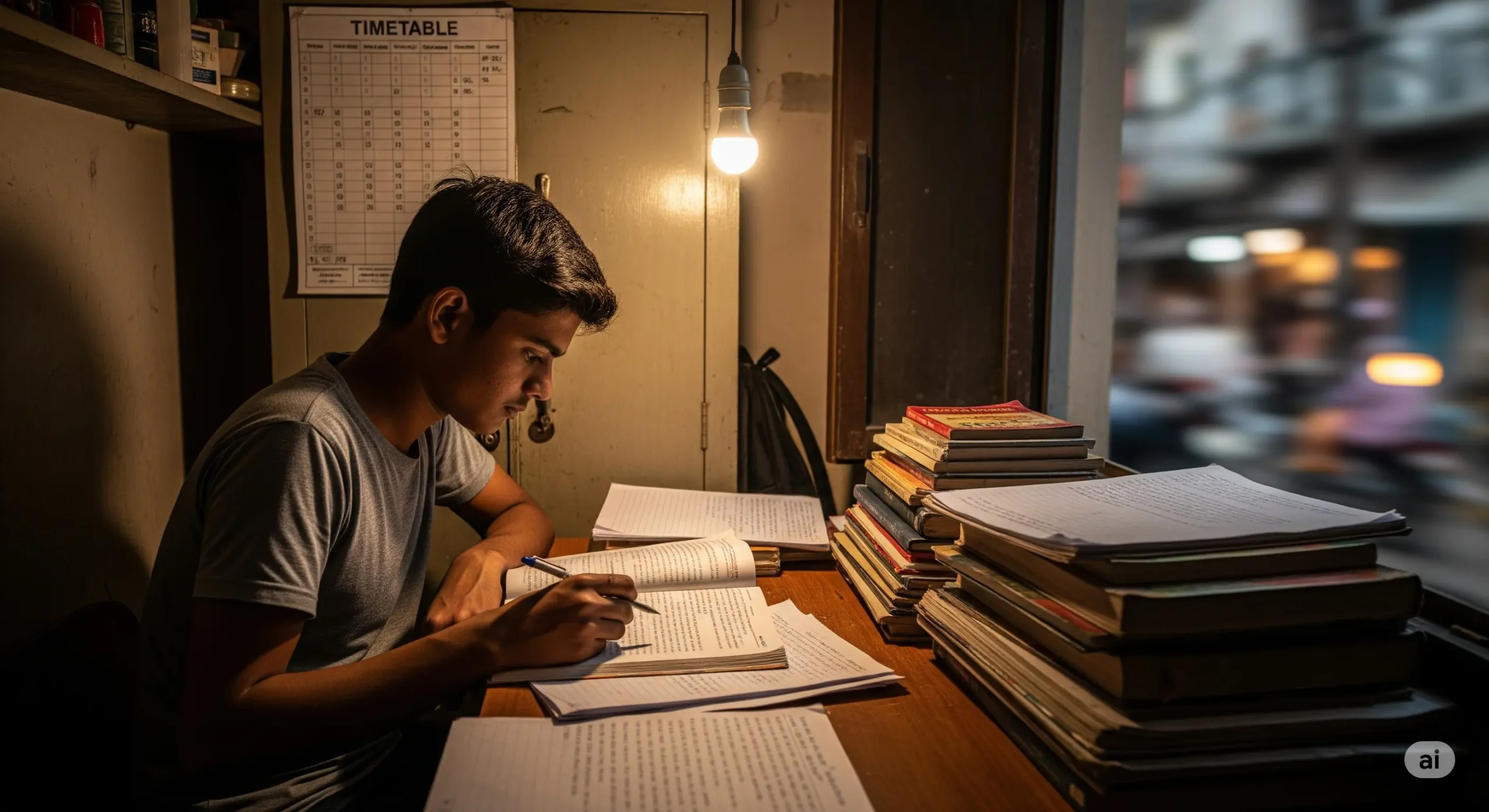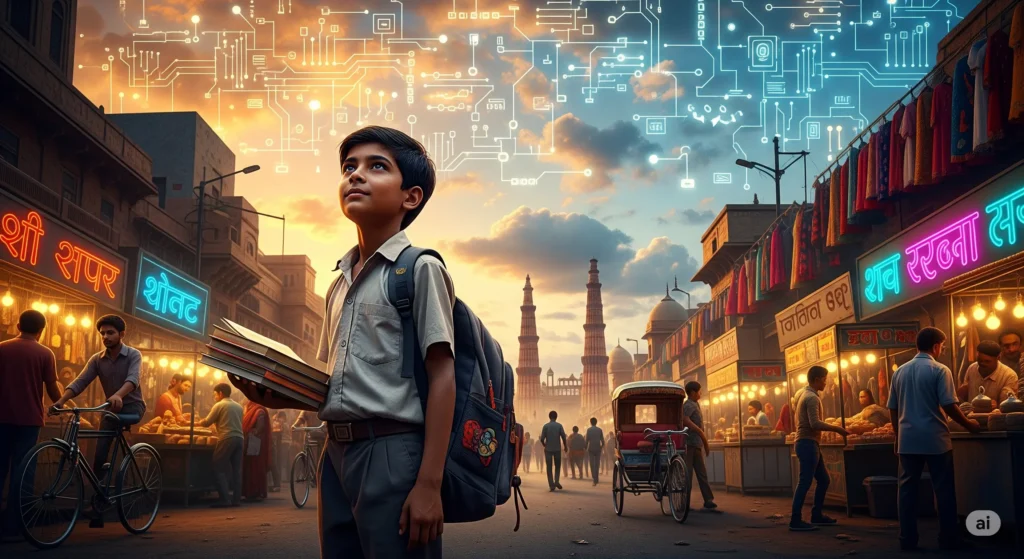
Vikram Pandit’s name today evokes boardrooms, bank rescues, and the sober calm of a leader who faced down a once-in-a-century financial crisis. But long before Citigroup and television hearings, there was a boy threading his way through Mumbai’s crush of humanity—past handcarts piled with fruit, past newsstands hawking evening papers, past monsoon puddles that swallowed sandals whole—determined to wring possibility from a life that offered few guarantees. His rise wasn’t staged in privilege. It was coaxed, inch by inch, from scarcity.
A City That Tests Every Nerve
Mumbai in the 1960s and ’70s was a miracle of motion and a study in limits. Families like Vikram’s measured comfort in careful teaspoons: a ceiling fan that worked through the night, a few extra rupees saved at month’s end, a school fee paid before the clerk shut his ledger. The apartment was modest and always busy—an economy of space where a foldout cot became a study table, and a windowsill stood in for a bookshelf. Water came on a schedule; kerosene was rationed; the hiss of a pressure stove was the soundtrack of evening meals.
Out on the streets, the city rehearsed its daily opera: bus conductors clanging coins, hawkers singing prices, schoolchildren in stiffly ironed uniforms fanning themselves with notebooks. To live here was to learn endurance. To aspire here was to learn strategy.
The Apartment That Taught Scarcity
Inside that small home, discipline did not arrive as a lecture; it arrived as necessity. Electricity failed often enough that homework had a backup plan: candles tucked in a tin, a matchbox kept dry in a jar, a schedule that front-loaded study time before the lights could betray you. When the monsoon roared in off the Arabian Sea, clothes never quite dried, and the smell of dampness seeped into everything—schoolbags, library books, even dreams. Floors were mopped not to shine but to keep fungus at bay.
Money was a careful choreography. Notebooks were covered in brown paper saved from last term. Textbooks passed from neighbor to neighbor in a chain of trust. Geometry boxes were treasured; refills for a single pen were logged like small victories. If a cousin married or a festival loomed, the family did math in whispers and shaved expenses elsewhere. In that arithmetic of limits, young Vikram learned a lesson he would later apply to balance sheets far larger: nothing scales without efficiency.
School on a Shoestring

Education was the family’s stubborn creed. But even a creed needs logistics. School meant crowded classrooms and chalk dust that lingered on blackboards and lungs alike. Teachers rotated; syllabi outpaced the supply of paper; exam forms had to be bought at the post office and filled in with a pen that couldn’t blot. A late bus could cost a seat in the front; a late tuition payment could cost an exam hall ticket. You learned to be early, precise, and prepared.
After class, there were no pricey coaching centers or private tutors. There were borrowed guides, margins crowded with notes, and a timetable taped to a cupboard door. Vikram carved out study time the way a mason carves stone—patiently, rhythmically, ignoring the noise of a household that never really slept. When a neighbor’s radio blared film songs, he trained himself to read through melody. When a power cut plunged everything into darkness, he memorized formulas by candlelight. Inconvenience didn’t become an excuse; it became a muscle.
Monsoon Lessons
Every year the rains took their tax. Streets filled, buses stalled, trains thinned, and schoolbags collected water like buckets. Shoes squelched. Pages wrinkled. Getting to class became an obstacle course through ankle-deep currents and traffic jams that defied reason. But exams did not reschedule for weather, and ambitions did not pause for puddles.
Those wet seasons coached a specific kind of composure: accept the delay, control your effort, keep walking. Later, when markets panicked and headlines screamed, that monsoon-forged calm would matter.
Finding Quiet in the Noise

Silence was a luxury the city rarely offered. So Vikram learned to make his own. He studied with cotton in his ears when the neighbor hosted guests. He leaned into the narrow band of cool breeze by the window and read while the city exhaled horn blasts and engine growls. Breaks were not indulgences but brief recalibrations: a sip of tea, a walk to the balcony, a gaze at the blinking lights strung across the chawls. Then back to the page.
He also learned to read beyond the syllabus: dog-eared magazines, Sunday editorials, the market pages he did not yet fully understand. Economics, he discovered, was just human behavior in numbers—hope quantified, fear priced in, rumors converted into yield. That insight stayed.
Exams as Escape Velocity
Competitive exams were more than tests; they were exit ramps. Application fees took a bite, train fares to far-off centers took another, and lunch was often a banana and a packet of biscuits to save money and time. But the ritual—roll number, sharpened pencils, an eye on the second hand—felt like a contract with a larger future.
He learned planning from scarcity: which chapters offered the most marks per minute of study, which sections to skip if time ran thin, how to recover from a tough question without losing the next five. Years later, those same instincts would guide strategic triage at an institution with trillions on its balance sheet. Triage is triage, whether it’s an exam hall or a crisis desk.
Crossing Oceans, Counting Rupees
The leap to the United States was not a golden runway but a narrow bridge. Admission to Columbia University opened the door; budgets negotiated in rupees determined how far he could step through. Airfare was a family project; luggage was weighed as much in sentiment as in kilos. New York was a symphony and a shock—tall, ferocious, dazzling. Apartments were expensive, winters were serious, and American idioms moved faster than commuter trains.
Part-time work helped. Summers meant extra shifts; evenings meant libraries that stayed open late enough to make a night owl of anyone. Even in that new world, he carried old habits: reuse, repair, repeat. A spreadsheet of expenses before spreadsheets were fashionable. A refusal to waste even a minute or a dime. If a course was hard, he read the references twice. If an assignment hurt, he finished it early. The discipline that once faced down blackouts now faced down theorems.
At Columbia he dove deep—first into engineering, then into finance—learning that models can be elegant and markets messy; that statistics can catch a trend but not always a rumor; that the numbers tell stories only if you ask them the right questions. Professors noticed his persistence; peers noted his steadiness. Both would become hallmarks.
The Slow, Steady Climb

Wall Street did not roll out a red carpet for an immigrant kid with a meticulous mind and a modest wardrobe. It tested him. Long hours, sharp elbows, and the freighted dance of office politics. He answered with preparation. He adopted a rule that echoed the old apartment’s resourcefulness: always leave a room better organized than you found it—whether that room is a model, a meeting, or a mandate.
He built a career the way he had once assembled study notes—piece by piece, refusing shortcuts that mortgage tomorrow for applause today. He earned a reputation for thinking in systems, not silos; for connecting market behavior to human behavior the way he once connected a city’s chaos to a child’s concentration.
Composure Born of Constraint
When Vikram Pandit became CEO of Citigroup in late 2007, the global financial system was already smoking at the seams. Within months, it was on fire. Liquidity vanished, confidence cratered, and the vocabulary of the nightly news shifted to acronyms that telegraphed fear. It was not a test you choose. It was a test that chooses you.
The skills that mattered most were not exotic. They were the same ones honed in the crucible of a small Mumbai kitchen and a crowded train platform: prioritize under pressure; communicate clearly when others are shouting; conserve what you must, cut what you can, and protect what keeps the enterprise alive. He reorganized, refocused, sold what could be sold, insulated what had to be insulated, and spoke plainly when plain speech was scarce.
Not everyone agreed with every decision; no crisis allows perfection. But the institution steadied. The boy who once studied by candlelight kept the lights on at a bank that—had it failed—would have darkened millions of households.
What Hardship Leaves Behind
Ask people who worked with him what they remember, and the answers often circle the same themes: preternatural calm, method over melodrama, the instinct to listen before deciding. Those are not mere personality quirks; they are artifacts of scarcity. When your childhood trained you to make do, you learn to make decisions without theatrics. When your first classroom was noisy, you learn to distill signal from noise.
He carried forward another inheritance: gratitude braided with ambition. Success never erased the memory of ration lines and rent worries. That memory shaped how he mentored, how he framed risk, and how he measured wealth—not only in market cap, but in institutional trust rebuilt one conversation at a time.
For the Next Kid in a Rented Room

There is a version of this story that reads like a fairy tale: poor boy, big city, bigger bank. But the truer version is tougher, and more useful. It says that conditions you don’t choose can still train qualities you’ll later need. It says that delaying comfort is not self-denial; it’s compound interest. It says that a life built patiently can withstand storms that flashy constructions cannot.
Somewhere in today’s Mumbai—perhaps on a balcony that barely fits a chair, perhaps under a flickering tube light—a student is taping a timetable to a cupboard door, scrounging for an old guidebook, and wondering if the world will ever make room. Vikram Pandit’s life offers an answer, delivered without sentimentality: make your own room, then keep it orderly enough to invite others in. That’s how families climb. That’s how institutions heal. That’s how a kid from a crowded street learns to steady a complicated world.
And if you want a single line to distill the method behind his climb, it might be this: control what you can, prepare for what you can’t, and never let scarcity shrink your sense of scale.






